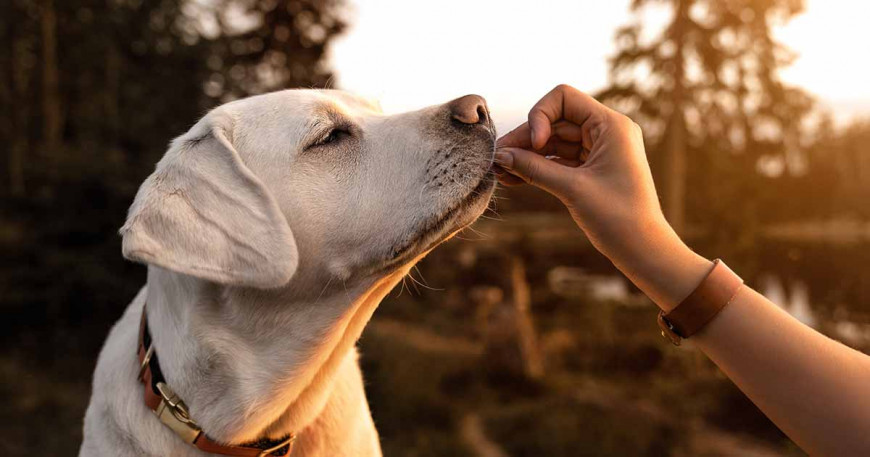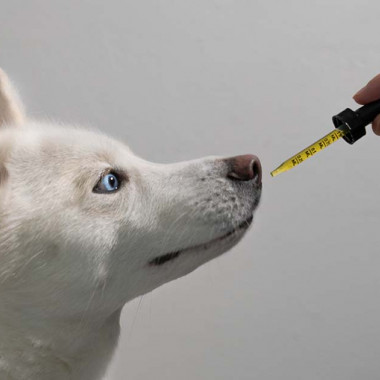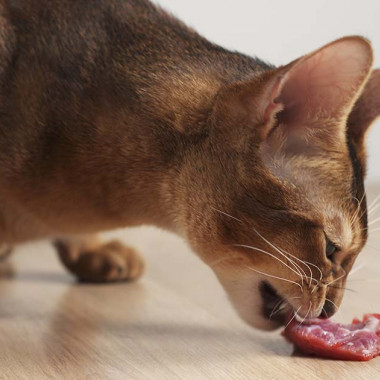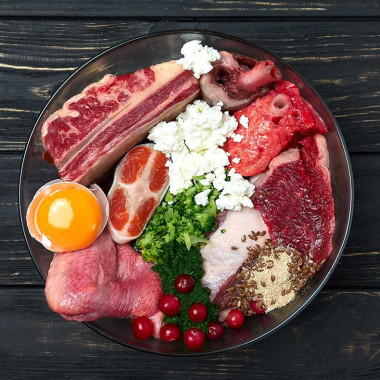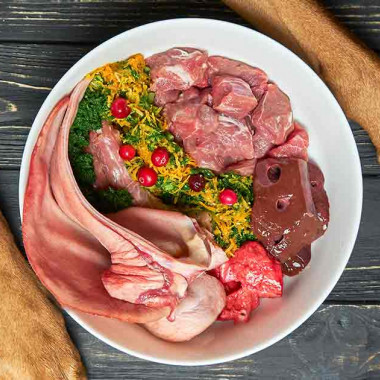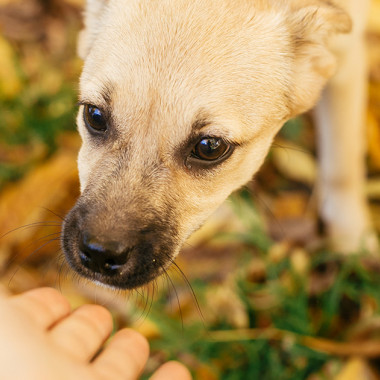BARF for healthy dogs is not particularly complicated if you study a few basic rules. However, feeding dogs on diets, whether due to kidney or liver problems, is a bit more challenging. Many people, when faced with a diagnosis, prefer to switch to kibble and veterinary diet cans. Of course, this is one option and may work for some. But for those who want to stick with or switch to BARF because of the diagnosis, we have good news. With the correct diet, your dog can thrive on raw food.
Kidney diet for dogs
For dogs with reduced kidney function, the most important thing is to reduce protein intake and only provide high-quality proteins (rich in essential amino acids). Not all types of meat are suitable. The best options are chicken, turkey, lamb, rabbit, and fish. Sensitive meats suitable for dogs on diets can be found in our e-shop in the category sensitive meat types.
Organs contain a large amount of phosphorus, so we minimize them. Occasionally, you can add unwashed tripe, udders, or lungs to the dog's diet.
Bones are given in smaller amounts, and if necessary, calcium can be supplemented in the form of crushed eggshells.
For a dog on a kidney diet, the portion of side dishes should be larger than the meat itself. This is due to the necessary protein restriction. About 1/3 of the diet consists of meat (some meals may contain no meat at all, replacing it with yogurt, cottage cheese, cheese, or eggs). The remaining 2/3 of the diet should be side dishes. You can feed virtually all vegetables and fruits that the dog likes, as well as cooked potatoes, rice, or pasta.
Like organs, oatmeal contains a lot of phosphorus, so it should be avoided for dogs on a kidney diet! Replace oatmeal with flakes suited for dogs on kidney diets. These can be found on Barfer in the category flakes with vegetables.
Nutritional supplements are important for dogs with reduced kidney function. Since their kidney's filtering ability is impaired, they lose important vitamins. We can replenish these with a combination of supplements such as coconut oil, brewer's yeast, rosehip peel, etc.
Liver diet for dogs
A liver diet for dogs will vary depending on the specific diagnosis. Some liver conditions require increased protein intake, while others require reduced amounts. The same applies to fats. In both cases, it is important to provide the dog with high-quality proteins.
The most suitable types of meat are chicken, turkey, beef, veal, and white fish. Bones are given in the usual amount (about 20% of the diet) and of the same type as the meat.
Since dogs with liver problems accumulate copper in their bodies, foods rich in copper should be limited. Therefore, avoid organs (especially liver), pork, lamb, duck, and salmon.
While it’s better not to feed salmon, salmon oil is an excellent source of omega-3 fatty acids. Coconut oil is also highly beneficial, especially for dogs with fat absorption issues.
Vegetables, fruits, dairy products, and eggs are suitable for dogs on a liver diet. However, fruits should be ripe and free of seeds. Other side dishes that should be included in the dog's diet are rice, pasta, and oatmeal. Oatmeal contains a large amount of fiber, which aids digestion and helps the body eliminate ammonia.
For dietary supplements, the best option is those containing milk thistle, as it has a fantastic ability to help regenerate liver cells.
Dogs on a liver diet should have their meals divided into 3 to 5 portions a day to avoid overloading their digestion with large meals.
Consult your veterinarian
Feeding dogs on special diets requires the owner to be well-informed and strictly follow what can and cannot be included in the dog’s bowl. It's also crucial to consult with your veterinarian. They should approve the diet and, if necessary, help adjust it to suit your dog's specific needs.
